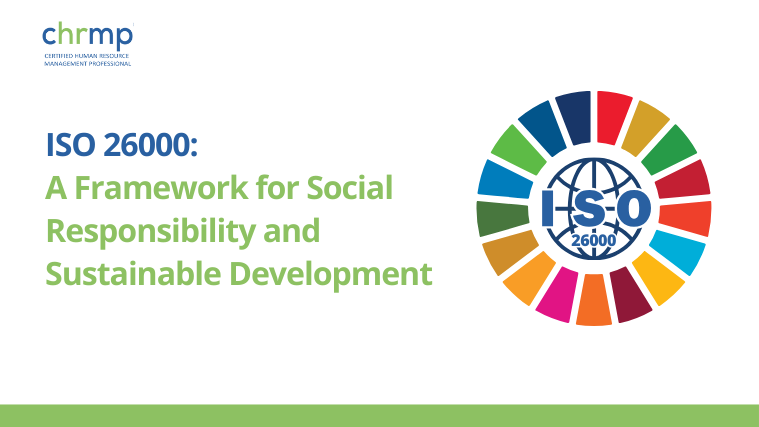

ISO 26000 is a guidance standard developed by the International Organization for Standardization (ISO) to support organizations in adopting responsible business practices that advance sustainable development. Unlike certification standards, ISO 26000 is non-binding and serves as a framework to help organizations operate ethically, considering human rights, labor standards, environmental impacts, and broader social responsibility. Since its publication in 2010, it has become a vital tool for entities aiming to align with global expectations for ethical business conduct and sustainable growth.
The ISO 26000 framework covers seven key areas of social responsibility (Clause 6):
Each of these subjects addresses a core element of sustainable development, offering organizations a holistic approach to managing their responsibilities to both society and the environment.
Under Clause 7, ISO 26000 emphasizes the integration of social responsibility across organizational functions, including:
Additionally, Clause 4 of the standard highlights fundamental principles of ethical behavior, transparency, and accountability. This broad ethical foundation ensures that organizations uphold respect for stakeholder interests, legal standards, and human rights.
ISO 26000 was the result of an extensive, eight-year process of multi-stakeholder collaboration. This effort involved over 90 national committees representing government agencies, NGOs, business interests, and trade unions. The aim was to develop a framework applicable globally, balancing the perspectives of developed and developing nations to ensure broad applicability and acceptance. This inclusive development process was crucial in establishing ISO 26000 as a globally recognized guide on social responsibility.
Since its release, ISO 26000 has garnered considerable global interest, especially in regions like Latin America and Asia. The standard has influenced national policies on corporate social responsibility and has been referenced by entities like the European Commission in defining CSR expectations. Despite its non-certifiability, the widespread adoption and acknowledgment of ISO 26000 highlight its impact in setting the standard for responsible organizational behavior.
ISO 26000 navigates a complex landscape where private standards intersect with public policy. The standard explicitly acknowledges the unique roles of governments and defers to international legal frameworks. However, its engagement in areas traditionally governed by public policy—such as labor rights, environmental protection, and trade practices—has sparked discussions on the balance between state sovereignty and global standards for responsibility.
One area of potential conflict is with the World Trade Organization’s (WTO) Technical Barriers to Trade (TBT) Agreement. To avoid unintended restrictions on trade, ISO 26000 carefully aligns with the TBT Agreement, ensuring that its guidance does not hinder national trade policies. Additionally, it incorporates the precautionary principle in environmental matters, advocating for preventive measures in the face of scientific uncertainty.
ISO 26000 seeks to foster social responsibility across markets, from local to international levels. Its principles and guidance enable organizations to embed responsible practices into their operations, creating an ethos of ethical behavior that can benefit both society and business. However, the complexity of governance interactions—balancing democratic decision-making, international law, and private standards—presents ongoing challenges.
Halina Ward, an expert on governance and sustainable development, suggests several improvements to strengthen ISO 26000’s impact:
ISO 26000 stands at the intersection of private standards and global governance, championing sustainable development through ethical and socially responsible practices. As organizations worldwide adopt this framework, ISO 26000’s influence on corporate responsibility continues to grow. Yet, navigating the fine line between voluntary standards and public policy will require ongoing collaboration, flexibility, and alignment with democratic principles to truly harness its potential for global good.

© 2007-2025 CHRMP| All Rights Reserved | Powered by Ripples Learning & Research Private Limited
